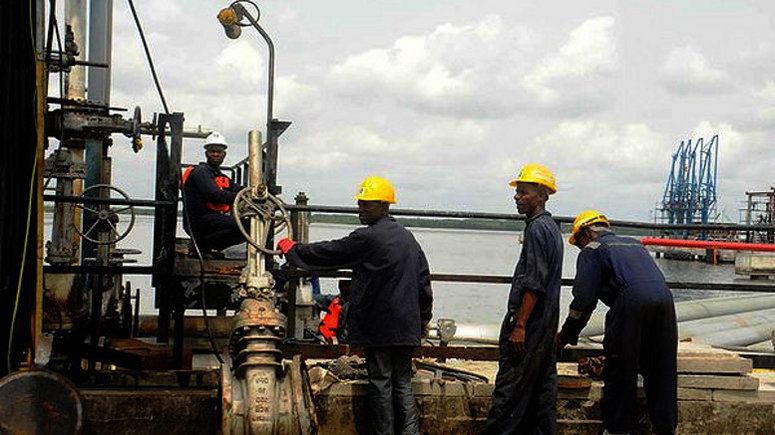The price of Bonny Light, Nigeria’s premium oil grade has dropped from $60.00 to $59.12 per barrel, thus constituting fresh threat to the nation’s 2019 budget.
The development which occurred Sunday indicated 88 cents below Nigeria’s $60.00 per barrel budget 2019 reference price.
Figures obtained from the global market also showed that the prices of the Organisation of Petroleum Exporting Countries, OPEC Basket and Brent also crashed from $58.90 to $57.96 and $59.50 to $58.37 per barrel respectively.
The general fall in prices was attributed mainly to ability of Saudi Arabia to restore export after the rehabilitation of damaged oil facilities.
Meanwhile, the Secretaries General of the Organization of the Petroleum Exporting Countries (OPEC) and the Gas Exporting Countries Forum (GECF) have signed a Memorandum of Understanding (MoU) to strengthen cooperation in research and the sharing of best practices.
Dr. Mohammad Sanusi Barkindo, Secretary General of OPEC, and his GECF counterpart, HE Yury Sentyurin, signed the MoU on the sidelines of the Russian Energy Week forum in Moscow.
In a statement sent to Vanguard, OPEC stated: “We look forward to utilize the framework we signed today in our MoU to deepen discussions, as well as undertake joint work and actions, in the interest of our members, entire industry, and the global economy”, Mr Barkindo said at the signing ceremony.
“It is the mainstream consensus that oil and gas together will continue to be the fuel of choice for the foreseeable future. In fact, most projections validate that oil and gas will continue to dominate energy basket.”
It further stated: “Dr Barkindo echoed the remarks of Mr Sentyurin that today’s signing ceremony is a milestone in the evolving productive relationship between OPEC and GCEF that started two years ago. The purpose of the MoU is to establish and strengthen cooperation in order to carry out activities and share experiences, views, information and best practices in areas of mutual interest.
“Areas of cooperation identified in the MoU include energy market monitoring, analysis, modelling and forecasting; energy market research studies covering the short- medium- and long-term, and their methodologies; energy market data and statistics, data and statistical operational topics (such as methodologies of data gathering, assessment and dissemination); energy initiatives and developments aimed at sustainability, along with environmental and social responsibility; and other areas and matters involving common interests and concerns.
“OPEC and GECF also agree to cooperate, where possible and appropriate, on the exchange of information and data; hold expert meetings and internal bilateral workshops to promote the exchange of knowledge and experiences; and cooperate on seminars, workshops, conferences and publications. In addition, OPEC and GECF may further identify any other appropriate means to further their cooperation.”
However, President Muhammadu Buhari had while presenting the 2019 budget to the National Assembly stated: “The 2019 Budget Proposal is intended to further place the economy on the path of inclusive, diversified and sustainable growth in order to continue to lift significant numbers of our citizens out of poverty. The underlying drivers of the 2019 revenue projections have been adjusted to reflect current realities. On the expenditure side, allocations to Ministries, Departments and Agencies of Government were guided by the 3 objectives of the ERGP, which are, (i) Restoring and Sustaining Growth; (ii) Investing in our People and (iii) Building a Globally Competitive Economy.”
It added: “Notwithstanding the recent softening in international oil prices, the considered view of most reputable analysts is that the downward trend in oil prices in recent months is not necessarily reflective of the outlook for 2019. However, as a responsible Administration, we will continue to monitor the situation and will respond to any changes in the international oil price outlook for 2019. With regard to oil production, I have directed the NPPC to take all possible measures to achieve the targeted oil production of 2.3 million barrels per day.”

